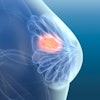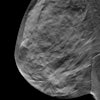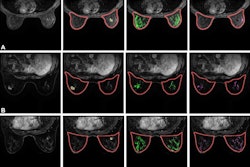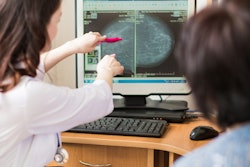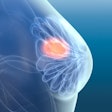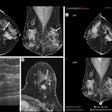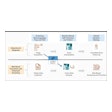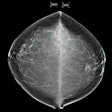MRI screen-detected breast cancers are most often invasive, according to research published September 22 in Clinical Breast Cancer.
A team led by Naveen Ghuman, MD, from Johns Hopkins University in Baltimore, MD, found that these invasive screen-detected cancers most commonly presented as a mass. Additionally, they reported that ductal carcinoma in situ (DCIS) was more likely to present as non-mass enhancement.
“Cancers detected by MRI screening had an excellent prognosis in our study population,” Ghuman and colleagues wrote.
Supplemental breast screening with MRI is recommended annually by the American Cancer Society for women who have greater than 20% lifetime risk for breast cancer. However, the researchers noted a lack of data on imaging features of breast cancers specifically detected on a screening breast MRI exam.
Ghuman and colleagues sought to add to the literature, describing the clinical outcomes and imaging appearance of MRI screen-detected breast cancers. It included data from 50 screen-detected breast cancers in 47 women identified between 2016 and 2022.
The researchers found that 32 (64%) of the total cancers detected were invasive. They also found through pathology that 18 (36%) were DCIS, 26 (52%) were invasive ductal carcinoma, five (10%) were invasive lobular carcinoma, and one (2%) was angiosarcoma.
Additionally, 43 of the patients (91%) were stage 0 or 1 at diagnosis and no breast cancer-related deaths were reported during the follow-up periods. Supporting this, 95.7% of patients had no evidence of disease during the follow-up period, with a mean follow-up of 33 months.
The team also reported that 25 of the cancers (50%) presented as masses, 24 (48%) presented as non-mass enhancement, and one (2%) presented as a focus. DCIS meanwhile presented as a non-mass enhancement in 17 of 18 such cases (94.4%), while 24 of 32 invasive cancers (75%) presented as masses (p < 0.001).
Finally, the researchers found that all cancers that were stage 2 at diagnosis were detected either on a baseline exam or more than four years since the previous breast MRI exam.
The study authors wrote that by understanding the most common imaging features of breast cancers found on screening MRI, interpreting radiologists can make more accurate diagnoses. They added that their findings support breast MRI’s clinical utility in diagnosing breast cancers early since these cancers had “excellent prognosis” in the study.
“This underscores the importance of annual MRI screening for breast cancer in high-risk patients,” the authors wrote.
The full study can be found here.

